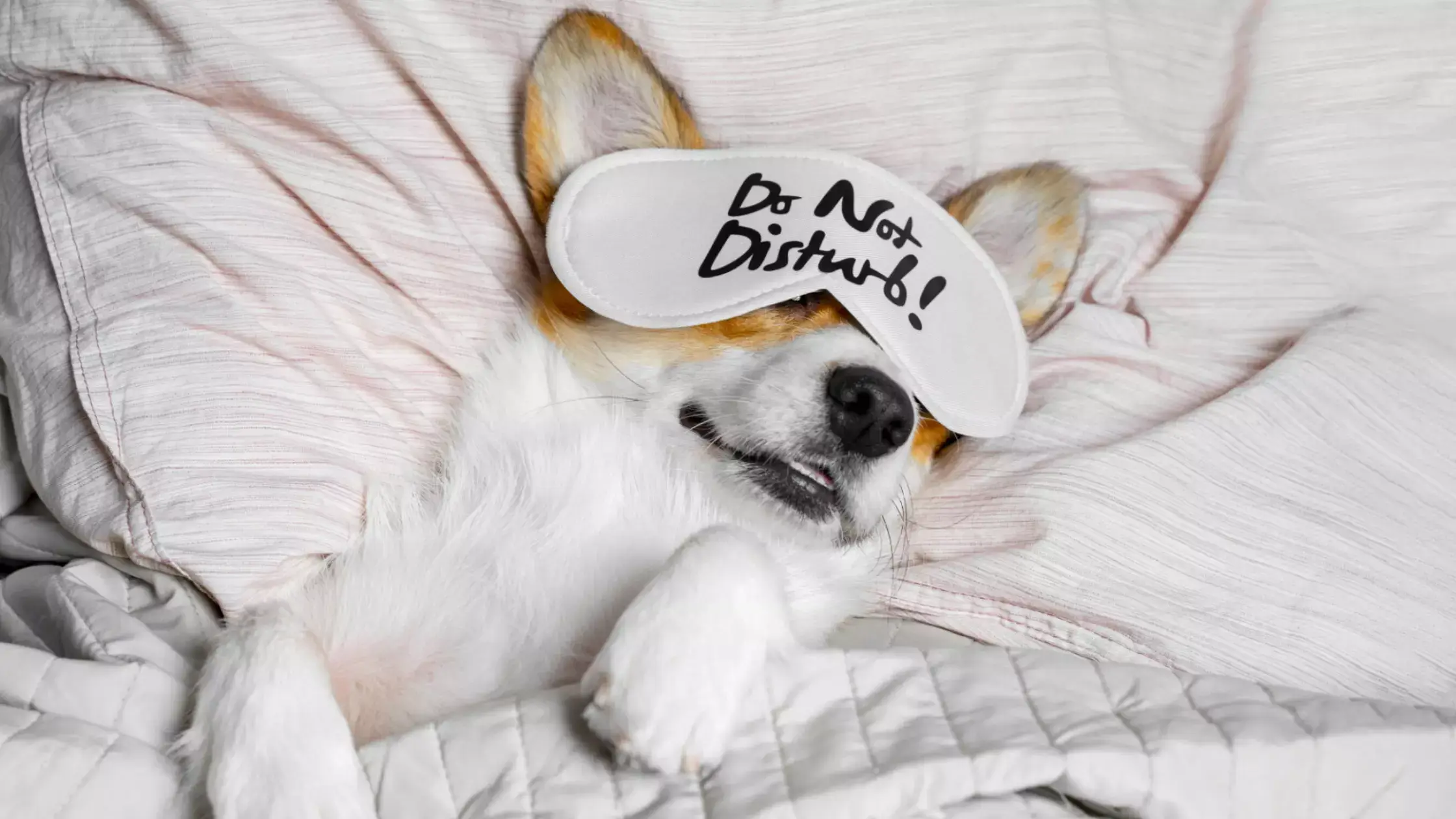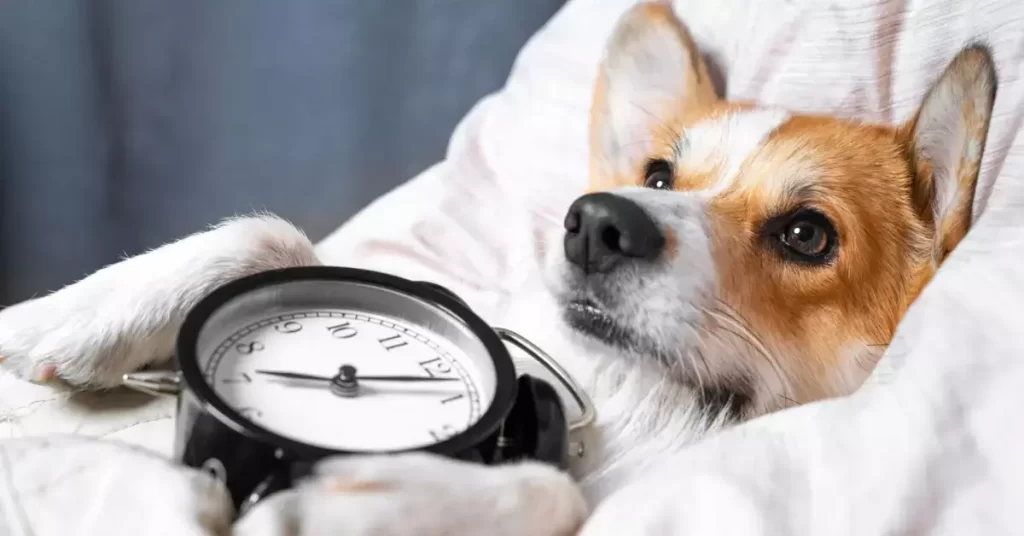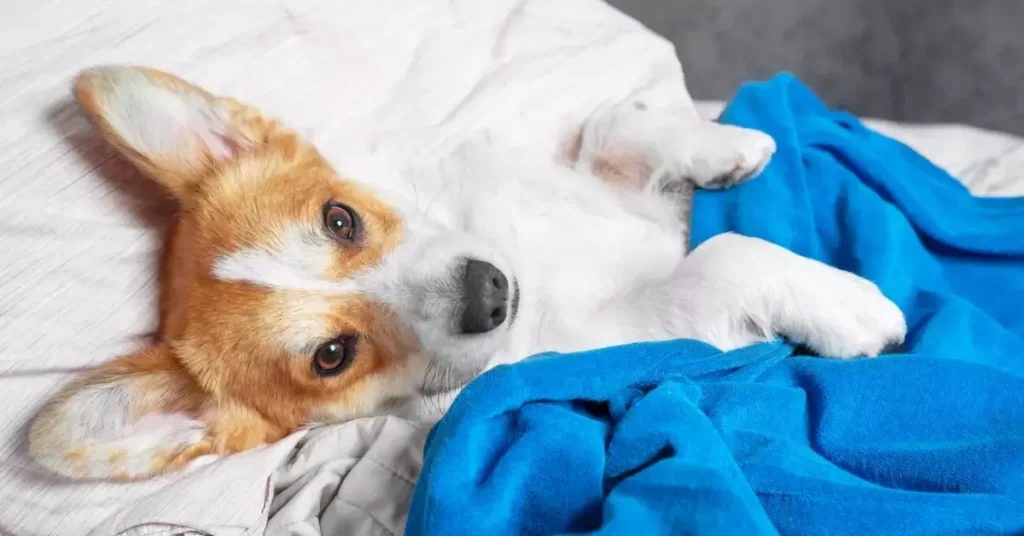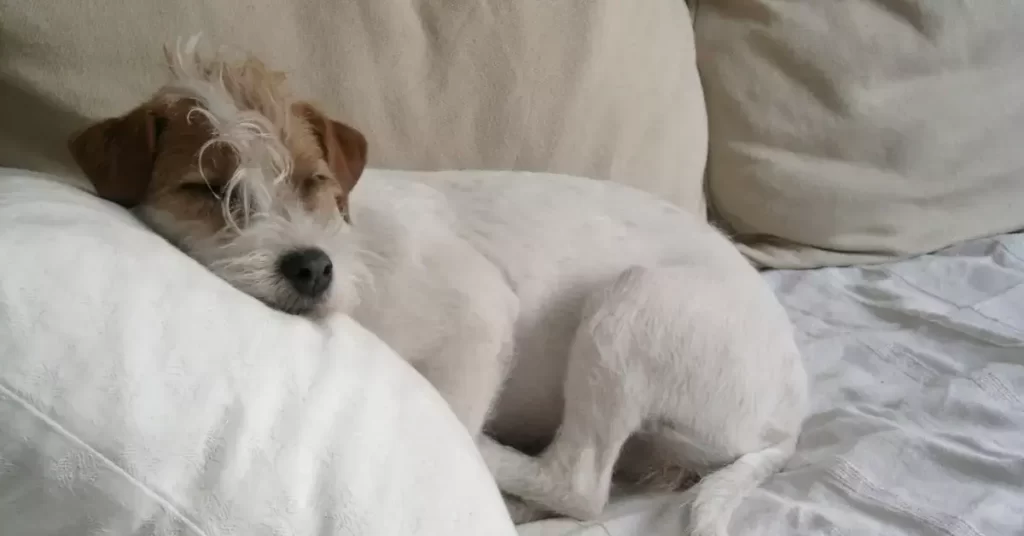Do Dogs Dream? The Answer to this Question May Surprise You🐶

You’ve probably noticed that your dog has some pretty vivid dreams and you’ve likely heard that dogs dream just like humans do, but what does this mean exactly?
Do dogs actually dream the same way we do? While the answer to this question remains somewhat of a mystery, there have been several studies conducted to determine whether or not canines experience sleep the same way as humans.
Here are some interesting findings to help you better understand the connection between human and canine sleep and dreams.
5 Things To Know About Dog Dreams:
#1: Some research suggests that dogs dream about people and locations, but some experts think dogs dream differently than humans. This could be because of how much their brains resemble those of wolves or because they are generally less verbal than humans.
We may never know for sure whether dogs dream as vividly as we do since our pets can’t tell us what they experience while sleeping. But if you have a dog at home, there are other signs you can look for if you want to know whether your furry friend is dreaming.
#2: Your dog might sleepwalk in his sleep – though it’s more common in small breeds and puppies – so keep an eye on him just in case they’re up and moving around while their brain is still asleep.
Also watch out for unusual panting, drooling, and restlessness during your pup’s slumber; these are all symptoms associated with canine dreams.
#3: Snoring during sleep means that your dog’s throat muscles are relaxing while they sleep. Remember also those breathing problems like snoring can be an indicator of serious health issues (not just when they’re related to dreams), so pay attention if you hear anything strange or different from usual!
#4: If you see your pup acting unusually hyper after waking up from a nap, don’t make any assumptions about whether they’re awake; rather, check to see if there’s something wrong with them by observing their behavior closer.
Sleepwalking pups may stumble into things, walk away from you without noticing or continue barking even when not alarmed by anyone or anything.
If your dog tends to suddenly act like its old self again shortly after awakening, chances are he was having a dream-filled sleep that resulted in running off and playing like crazy for no apparent reason!
#5: Puppies tend to twirl and leap around wildly in their sleep as if chasing mice or squirrels; learn whether one of your older pups does this often since it’s likely caused by dreams resulting from strong instincts left over from puppyhood.
So yes, sometimes dogs do dream and it looks pretty funny watching them chase imaginary animals during sleep, doesn’t it?
What Do Dogs Dream About?

Chances are, you’ve seen a dog sleep and thought something like, Oh wow. They must be dreaming about chasing squirrels or getting petted.
But do dogs really dream about these things when they sleep or is that just a myth perpetuated by Disney movies and popular TV shows? Surprisingly enough, we don’t know for sure.
It might seem strange that we don’t fully understand how animals experience their dreams—dogs included—but it isn’t exactly clear what humans dream about either! It turns out our ability to interpret animal dreams may not be as advanced as once thought… or at least more research is needed.
In some cases, researchers can induce canine dreaming by giving them certain compounds before bedtime. While subjects are unconscious, trained scientists play sounds from previous experiences through headphones to help contextualize whatever images come up while they’re asleep. (So far, studies have shown that dogs dream of other dogs and cats).
But there isn’t enough research on dog dreams yet to make any conclusive claims about what they experience when sleeping.
Until we know more about how dogs process stimuli during sleep—and develop a non-invasive way of detecting whether or not their brains are actively registering those dreams—canine dreams will remain a mystery for us humans.
In fact, until our understanding of human dreams is more developed, it may be hard to fully understand how animals dream in general.
All we can do now is theorize… And use anecdotal stories to support our theories! Do you think your dog has been daydreaming about chasing squirrels when they sleep at night? Tell us all about it! Let me know in the comments section below.
How Do We Know If Our Dogs Are Dreaming?

When looked at recordings of dog brainwaves and found that dogs, like humans, experience Rapid Eye Movement (REM) sleep—the stage during which we dream.
They also recorded patterns of electrical activity on dogs’ EEGs similar to those seen in human REM sleep. Though it has been suggested that non-human animals can’t experience dreams, further research may prove otherwise.
Scientists have proposed methods for testing whether or not non-human animals are actually dreaming during periods of rapid eye movement.
Current technology isn’t advanced enough to test these ideas yet, but perhaps future research will be able to give us a better idea of what our canine companions might be dreaming about when they get a little shut-eye.
Until then, who knows if your pup is having alligator dreams or daydreaming about frolicking through grassy fields with squirrels and butterflies…unless you ask them! Because let’s face it: everybody wants to know whether their furry friend sees pawsome things while they’re sleeping.
If you truly want to understand anything, observe its beginning and its end. In other words, observe them while sleeping and be quiet so as not to wake them up. Their own time to dream awaits.
And who knows, maybe someday someone will invent dog goggles to allow them to go explore and tell us more about their fantastical dreams. But until then, don’t disturb doggies’ dreams and take care of them.
How Often Do Dogs Dream?

While it’s difficult to say definitively, we do know that dogs sleep much more lightly than humans. So if your pooch appears to be sleeping but you can hear him panting and moving his legs, chances are they’re dreaming.
They may also wake up shaking or even growling; since they’re in a semiconscious state, they may feel threatened by these dreams. If you notice such activity, take comfort in knowing that he or she is perfectly safe—and probably just chasing squirrels through their dreams!
Final Verdict:
Our dogs may not be able to narrate their dreams, but that doesn’t mean they aren’t having them. Dogs dream and their sleep patterns are similar to those of humans.
So go ahead and give your best friend a hug, they may have been running from a ferocious dragon during their last nap! We may never know what exactly goes on in our pups’ heads at night, but we can get an idea by simply observing their behavior while they are sleeping.
Consider scheduling an appointment with your vet if you notice any extreme changes in mood or behavior—perhaps even lack of appetite—that could be affecting your pet’s health and quality of life.
If you suspect something else is going on, make sure you share that information with your vet so together you can treat or eliminate whatever cause is underlying all these symptoms.
You should also look into alternative methods for training your dog such as clicker training which has shown very positive results compared to traditional punishment-based methods. Clicker training doesn’t work for every dog, but it is definitely worth looking into before giving up on traditional methods.

